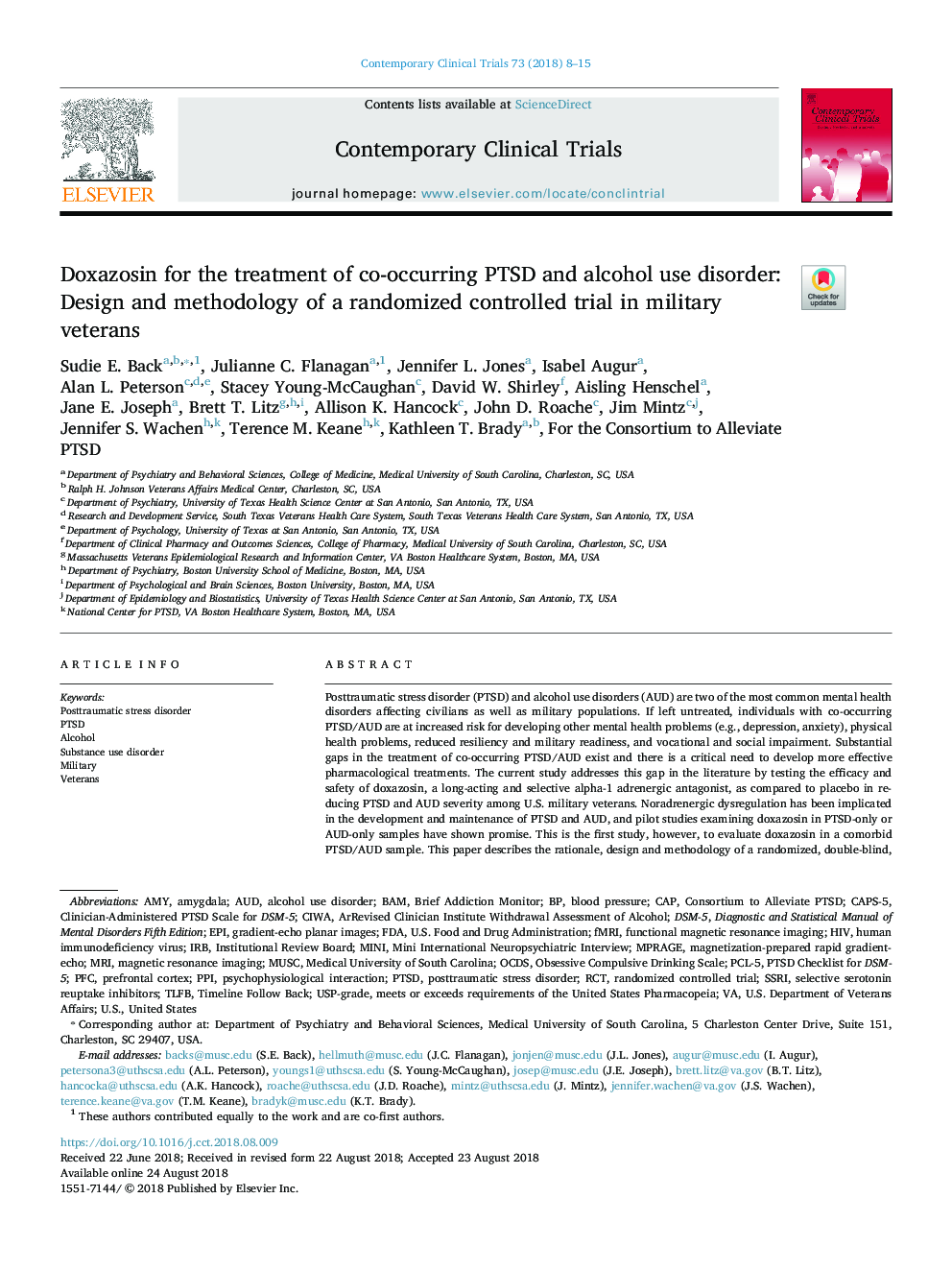| Article ID | Journal | Published Year | Pages | File Type |
|---|---|---|---|---|
| 8958098 | Contemporary Clinical Trials | 2018 | 8 Pages |
Abstract
Posttraumatic stress disorder (PTSD) and alcohol use disorders (AUD) are two of the most common mental health disorders affecting civilians as well as military populations. If left untreated, individuals with co-occurring PTSD/AUD are at increased risk for developing other mental health problems (e.g., depression, anxiety), physical health problems, reduced resiliency and military readiness, and vocational and social impairment. Substantial gaps in the treatment of co-occurring PTSD/AUD exist and there is a critical need to develop more effective pharmacological treatments. The current study addresses this gap in the literature by testing the efficacy and safety of doxazosin, a long-acting and selective alpha-1 adrenergic antagonist, as compared to placebo in reducing PTSD and AUD severity among U.S. military veterans. Noradrenergic dysregulation has been implicated in the development and maintenance of PTSD and AUD, and pilot studies examining doxazosin in PTSD-only or AUD-only samples have shown promise. This is the first study, however, to evaluate doxazosin in a comorbid PTSD/AUD sample. This paper describes the rationale, design and methodology of a randomized, double-blind, placebo-controlled trial of doxazosin (16â¯mg/day) delivered over 12â¯weeks among military veterans with current PTSD and AUD. In addition, functional magnetic resonance imaging (fMRI) is applied at pre- and post-treatment to investigate the underlying pathophysiology of comorbid PTSD/AUD and identify prognostic indicators of treatment outcome. This study is designed to accelerate research on co-occurring PTSD/AUD and provide empirical evidence to inform clinical practice.
Keywords
MPRAGEPTSD Checklist for DSM-5CAPS-5U.S. Department of Veterans AffairsOCDSFDAPCL-5TLFBRCTDSM-5IRBEPIU.S.PPIPFCAudRandomized controlled trialAmygdalaPosttraumatic stress disorderPTSDAlcohol use disorderSubstance use disorderU.S. Food and Drug AdministrationAlcoholAMYMRIUnited StatesBAMMagnetic resonance imagingfunctional magnetic resonance imagingfMRIPsychophysiological interactionveteransMedical University of South CarolinaMagnetization-prepared rapid gradient-echoBlood pressureprefrontal cortexmuscobsessive compulsive drinking scaleselective serotonin reuptake inhibitorsSSRIMINIMini International Neuropsychiatric InterviewMilitaryinstitutional review boardhuman immunodeficiency virusHIVCaP
Related Topics
Health Sciences
Medicine and Dentistry
Medicine and Dentistry (General)
Authors
Sudie E. Back, Julianne C. Flanagan, Jennifer L. Jones, Isabel Augur, Alan L. Peterson, Stacey Young-McCaughan, David W. Shirley, Aisling Henschel, Jane E. Joseph, Brett T. Litz, Allison K. Hancock, John D. Roache, Jim Mintz, Jennifer S. Wachen,
